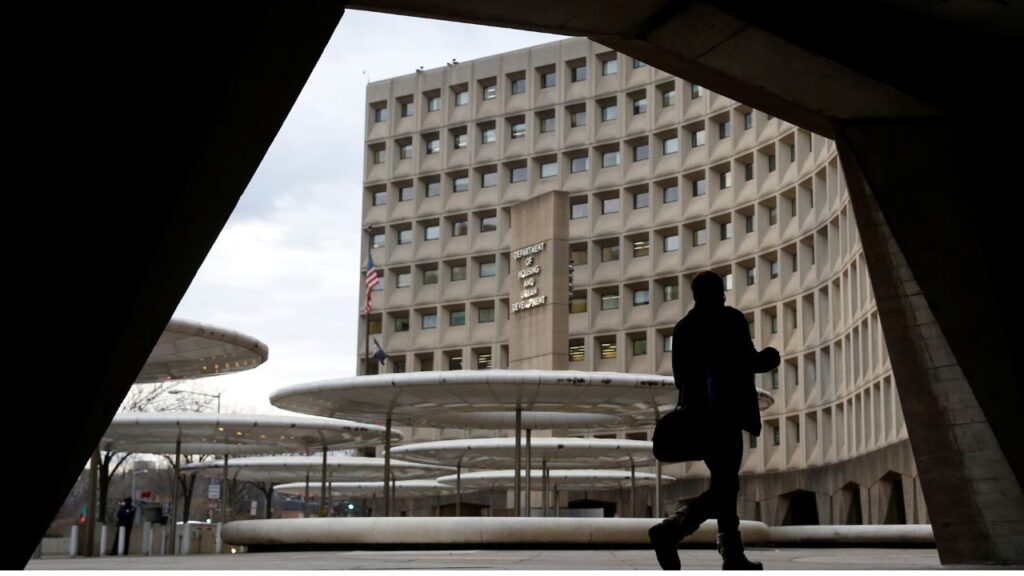Share
SACRAMENTO — Desperate for more housing in the nation’s most populous state, the leader of the California Senate committed Thursday to passing a law this year to add more housing in a state facing a shortage of 3.5 million homes.
Senate President Pro Tem Toni Atkins’ comments came moments after the Senate failed to pass the most ambitious housing bill in memory: One that would have forced local governments to let developers build small apartment buildings in some neighborhoods reserved for single-family homes.
The bill took on what has become the biggest issue in California: A housing shortage that is sending rents and home prices soaring while contributing to the state’s growing homeless population, the largest in the country.
Senate Bill 50, authored by San Francisco Democrat Scott Wiener, failed to pass Wednesday after a lengthy debate. Wiener brought the bill back up for a vote Thursday, but it still fell three votes shy of passage despite more than an hour of negotiations on the floor while senators sat idle at their desks.
After the vote, Atkins took the rare step of addressing her colleagues about the bill, saying: “This is not the end of this story.”
Borgeas Voted ‘No.’ Hurtado, Caballero Voted ‘Yes.’
Sen. Andreas Borgeas (R-Fresno) was among the 15 lawmakers who voted against SB 50.

“The only thing that folks agree on is that we need housing. How we get there, everyone has a different theory.” — Sen. Andreas Borgeas (R-Fresno)
Later Thursday, Borgeas’ office released a statement providing more detail on his opposition to Wiener’s bill.
“The Senate should improve upon and reintroduce housing legislation,” Borgeas said. “California’s complex housing crisis cannot be solved by a ‘one size fits all’ approach, as we are a diverse state with a variety of housing needs. We should focus on the housing markets with the most demand and build a stronger legislative coalition that also supports local land use authority. I look forward to working with the author, stakeholders, and Senate colleagues on an improved housing bill.”
Two other members of the Valley’s delegation, Sen. Melissa Hurtado (D-Sanger) and Sen. Anna Caballero (D-Salinas), backed the bill. There was no vote recorded for Sen. Shannon Grove (R-Bakersfield). Because the bill needed 21 votes, Groves’ decision not to vote was the equivalent of rejecting the legislation.
The Bill Needed 21 Votes to Pass, but Only Got 18
“I want to personally commit to each and every one of you, to the people of California, that a housing production bill to help alleviate our housing crisis will happen this year,” Atkins said. “It is time now for all sides to step up.”
Because the bill was held over from last year, it has to pass the Senate by Friday to have a chance at becoming law this year. But the Senate finished work on Thursday and will not meet Friday.
“The defeat of SB 50 is just another reminder that California has failed on housing,” Wiener told reporters after the vote.
The bill needed 21 votes to pass, but only got 18. Of the 15 senators voting against it, seven are from Los Angeles.
Wiener said after the vote the politics around housing and land use in Los Angeles County — the most populous county in the country — are challenging.
“The aggressive, bold action that we need is going to be controversial, no matter what it is,” he said.
Any Solution Will Require a Long-Term State Funding Commitment
The measure would have allowed developers to build five-story apartment buildings within a half-mile of rail stations and ferry terminals. Smaller apartment buildings could have been built within a quarter-mile of bus stops on a frequent bus line or a census tract that officials say has lots of available jobs.
Developers would be allowed to build those apartments in areas where local zoning laws don’t allow them, including neighborhoods filled with single-family homes. That’s why many local governments opposed the bill.
The League of California Cities, which opposed Senate Bill 50, pledged to continue working on how to “increase housing supply across the state,” adding that “any solution will require a long-term state funding commitment that matches the scale of a crisis that has been decades in the making.”
Meanwhile, the state Senate will soon consider a proposal to require cities and counties devote more land for the construction of multi-family homes for middle-class earners. That legislation passed the California Assembly after amendments over the past year. Wiener is a co-author.
The bill requires at least 25% of a metropolitan area’s local housing need for moderate-income and above moderate-income earners be constructed in multi-family zones, with homes like duplexes and townhomes.
(GV Wire contributed to this story.)



















